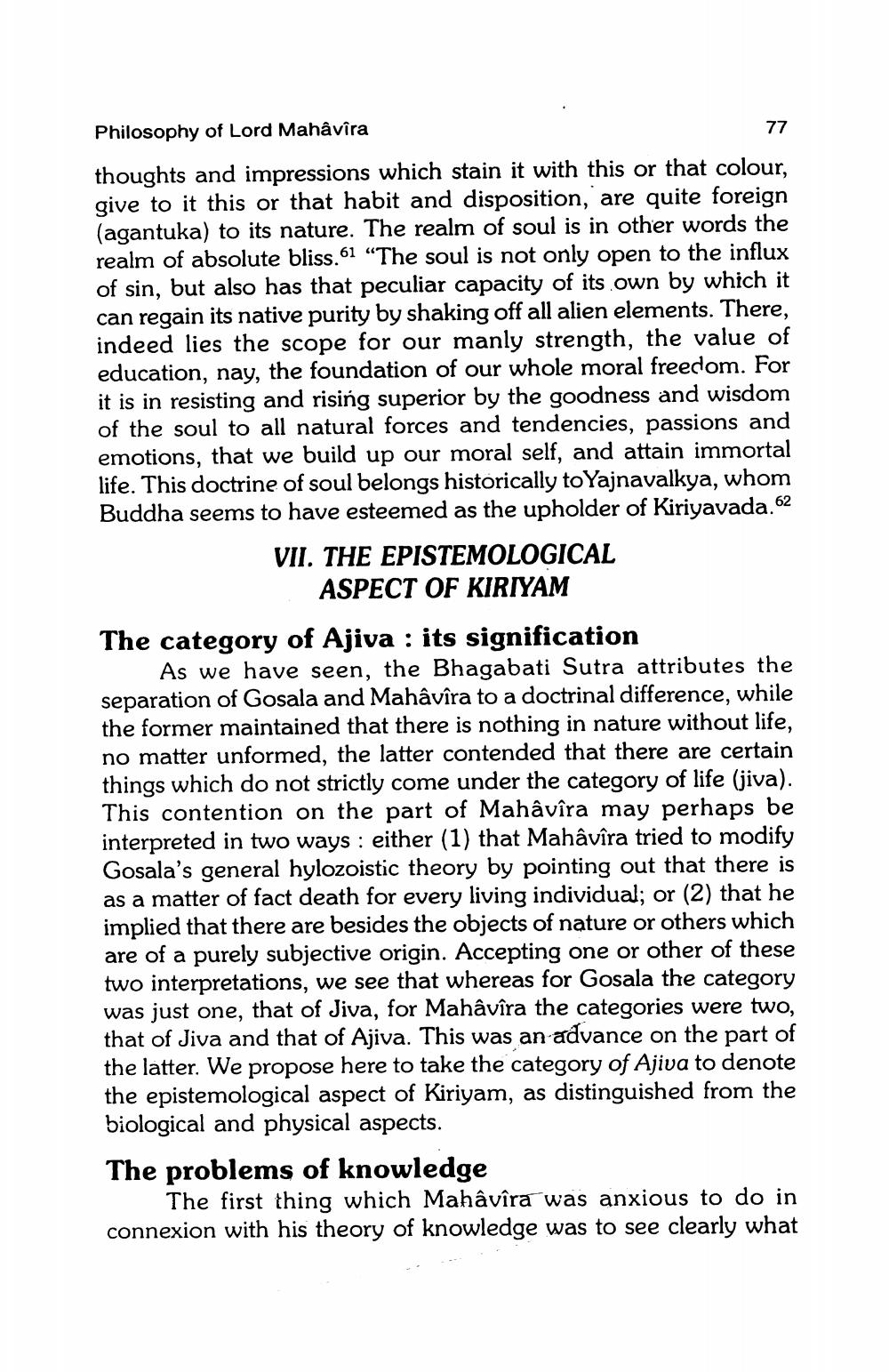________________
77
Philosophy of Lord Mahâvîra
thoughts and impressions which stain it with this or that colour, give to it this or that habit and disposition, are quite foreign (agantuka) to its nature. The realm of soul is in other words the realm of absolute bliss.61 "The soul is not only open to the influx of sin, but also has that peculiar capacity of its own by which it can regain its native purity by shaking off all alien elements. There, indeed lies the scope for our manly strength, the value of education, nay, the foundation of our whole moral freedom. For it is in resisting and rising superior by the goodness and wisdom of the soul to all natural forces and tendencies, passions and emotions, that we build up our moral self, and attain immortal life. This doctrine of soul belongs historically to Yajnavalkya, whom Buddha seems to have esteemed as the upholder of Kiriyavada. 62 VII. THE EPISTEMOLOGICAL ASPECT OF KIRIYAM
The category of Ajiva : its signification
As we have seen, the Bhagabati Sutra attributes the separation of Gosala and Mahâvîra to a doctrinal difference, while the former maintained that there is nothing in nature without life, no matter unformed, the latter contended that there are certain things which do not strictly come under the category of life (jiva). This contention on the part of Mahâvîra may perhaps be interpreted in two ways: either (1) that Mahâvîra tried to modify Gosala's general hylozoistic theory by pointing out that there is as a matter of fact death for every living individual; or (2) that he implied that there are besides the objects of nature or others which are of a purely subjective origin. Accepting one or other of these two interpretations, we see that whereas for Gosala the category was just one, that of Jiva, for Mahâvîra the categories were two, that of Jiva and that of Ajiva. This was an advance on the part of the latter. We propose here to take the category of Ajiva to denote the epistemological aspect of Kiriyam, as distinguished from the biological and physical aspects.
The problems of knowledge
The first thing which Mahâvîra was anxious to do in connexion with his theory of knowledge was to see clearly what




